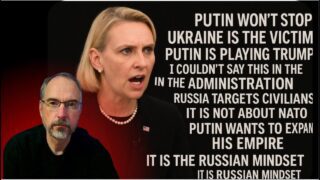
Ukraine on track to join EU by 2030, says EU ambassador Mathernová
In an interview with NV, EU Ambassador to Ukraine Katarína Mathernová provided an optimistic perspective on Ukraine’s potential European Union membership, projecting the country’s integration by the end of the decade despite ongoing challenges.
Ukraine is actively pursuing European Union (EU) membership, having officially begun accession negotiations in June 2024. Despite the ongoing Russo-Ukrainian war, the EU has committed to supporting Ukraine’s integration efforts, with projections suggesting potential membership by the end of the decade.
The Ambassador highlighted a significant paradigm shift in EU-Ukraine relations, particularly following Russia’s full-scale invasion.
“I remember that on 28 February 2022 (four days into the all-out-war, – Ed.), we were busy trying to secure bulletproof vests for our Ukrainian friends, and at that very moment, we learned that President Zelensky had submitted an application to join the EU. It was somewhat unexpected,” she recalled.
The ambassador described Ukraine’s EU accession process as a “marathon phase,” noting substantial progress across multiple sectors. Her recent expansion report indicates advancement in nearly all negotiation chapters, with no areas of regression – a remarkable achievement during wartime.
Digital transformation emerges as a standout area, with Mathernová praising Ukraine as a “digital government leader.” She anticipates immediate opportunities in EU digital services, beginning with roaming and expanding to other digital platforms.
Significant progress has been documented in ecological regulation, defense innovations, and fundamental principles like rule of law and anti-corruption efforts. However, Mathernová emphasized continued work is necessary, particularly in judicial system reform and anti-corruption efforts.
The most critical challenge remains winning the ongoing war, which Mathernová considers the primary prerequisite for EU membership. She acknowledges potential obstacles, including skepticism from some EU member states and concerns about agricultural competition.
Drawing parallels with previous EU expansions, Mathernová explained that member countries like Poland, Czech Republic, and Slovakia underwent similar transformative processes. “EU membership was political fuel for reforms” for her homeland of Slovakia, she noted, estimating that approximately 50% of these countries’ successes stemmed from institutional reforms.
Related:













